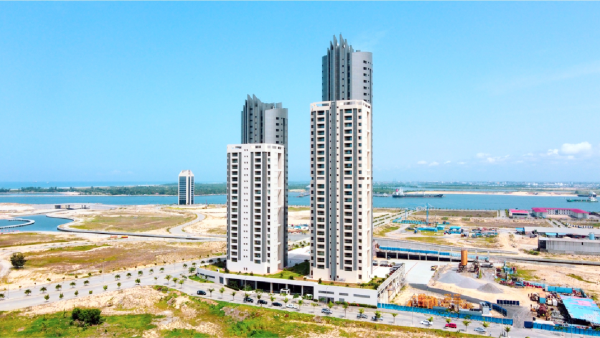
5 Idan Moments in Nigeria’s Real Estate History
Nigeria’s real estate sector has witnessed significant milestones and iconic moments that have shaped its landscape and contributed to the country’s growth and development. In this article, we highlight five memorable moments in Nigeria’s real estate history that have left a lasting impact on the industry.
- Creation of the Federal Mortgage Bank of Nigeria (FMBN): In 1977, the Federal Mortgage Bank of Nigeria was established as a key institution in the country’s real estate sector. The FMBN plays a vital role in providing affordable housing finance through mortgage loans, promoting homeownership, and supporting the development of the housing sector. Its creation marked a significant step towards addressing the housing deficit in Nigeria and facilitating access to housing finance for Nigerians.
- Development of the Eko Atlantic City: Eko Atlantic City, an ambitious real estate project located in Lagos, stands as a remarkable milestone in Nigeria’s real estate sector. The development of this modern and self-sustaining city on reclaimed land showcases the country’s capacity for large-scale urban planning and infrastructure development. Eko Atlantic City aims to provide world-class commercial, residential, and recreational spaces while addressing the challenge of coastal erosion in Lagos.
- Implementation of the Real Estate Investment Trust (REIT) Framework: The introduction of the Real Estate Investment Trust (REIT) framework in Nigeria in 2008 marked a significant milestone in the country’s real estate market. REITs allow individuals to invest in real estate assets and earn returns similar to dividends from stocks. This innovative investment vehicle has provided Nigerians with opportunities to participate in the real estate market, diversify their portfolios, and benefit from rental income and capital appreciation.
- Launch of the National Housing Policy: The launch of the National Housing Policy in 1991 was a pivotal moment in Nigeria’s real estate sector. The policy aimed to address housing challenges by providing a comprehensive framework for housing development, finance, and regulation. It emphasized public-private partnerships, encouraged affordable housing initiatives, and promoted sustainable urban development. The National Housing Policy continues to guide the sector and shape housing-related interventions in the country.
- Completion of the Dangote Refinery: While primarily known for its significance in the energy sector, the completion of the Dangote Refinery has had a profound impact on Nigeria’s real estate market. Located in Lekki, Lagos, this mega-infrastructure project has spurred the development of residential, commercial, and industrial properties in the surrounding areas. The refinery’s presence has attracted investments, created employment opportunities, and stimulated the growth of ancillary industries, making it a transformative moment for the real estate sector.
Conclusion: Nigeria’s real estate sector has witnessed several transformative moments that have shaped its trajectory and contributed to the country’s economic development. From the establishment of the FMBN and the development of Eko Atlantic City to the introduction of the REIT framework, launch of the National Housing Policy, and completion of the Dangote Refinery, each moment has had a profound impact on the sector’s growth, housing accessibility, and investment opportunities. These iconic moments serve as a testament to Nigeria’s potential in the real estate market and highlight the ongoing efforts to address housing challenges, promote sustainable development, and drive economic growth in the country.


